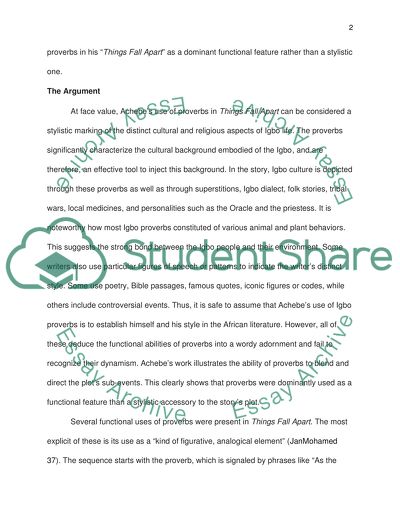Cite this document
(“Proverbial Features of Chinua Achebes Things Fall Apart Essay”, n.d.)
Retrieved from https://studentshare.org/literature/1440073-discuss-these-words-of-wisdom-as-a-feature-of-the
Retrieved from https://studentshare.org/literature/1440073-discuss-these-words-of-wisdom-as-a-feature-of-the
(Proverbial Features of Chinua Achebes Things Fall Apart Essay)
https://studentshare.org/literature/1440073-discuss-these-words-of-wisdom-as-a-feature-of-the.
https://studentshare.org/literature/1440073-discuss-these-words-of-wisdom-as-a-feature-of-the.
“Proverbial Features of Chinua Achebes Things Fall Apart Essay”, n.d. https://studentshare.org/literature/1440073-discuss-these-words-of-wisdom-as-a-feature-of-the.


